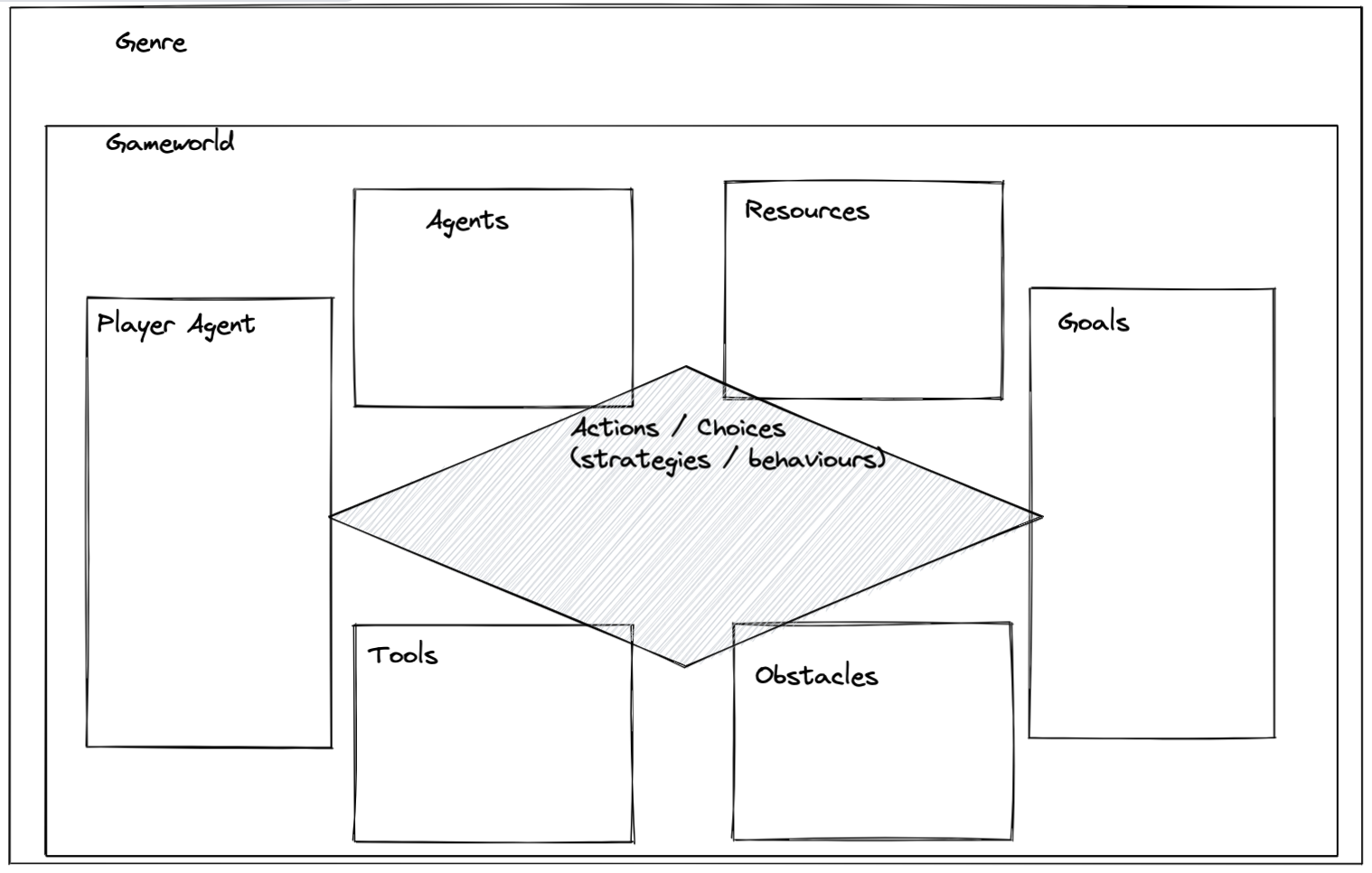Historical Problem Space
Jeremiah McCall:
history is simply the curated representation of the past. The historian, the person doing history, selects sources and what they perceive as historical facts and portray the past through this curation. This makes history an interpretation, not a fixed record.
Curation implies a choice. What guides that choice?
choices, reasons, effects.
For McCall, games are systems
Complex Systems? Or merely complicated systems?

The elements that make the game

(from McCall's article:)
- A primary player agent representing some form of historical actor tasked with one or more designer-made goals, ultimately expressed as victory conditions, operating within

- a virtual gameworld, a simulated world that usually refers to specific historical locations and contains the game components, essentially the game system, within an environment and geography that includes

- various gameworld elements: agents, minions, resources, obstacles, and tools, whose function primarily is to enable and/or constrain the player agent in achieving those designed goals;

- and so, the player forms strategies, makes choices, and adopts behaviors to reach those designed goals, optimally by capitalizing on abilities and circumventing, overcoming, or working within the constraints in the game's virtual space.
Form Shapes Content; HPS 'illuminates that reality'

A diagram showing McCall's analysis of Through the Darkest Times HPS from http://www.playthepast.org/?p=7342
Historically Meaningful Game Design. Our guiding principle is that every element of the game should be considered in light of how historically meaningful it is and how much it contributes to our prioritised historical discourses.
- from dream of darkness devlog may 2022
All of this wrapped in a meta space of 'genre'
- the material constraints of designing games in a game industry
What games are now is also a result of all the games that didn’t get made, work which has been suppressed and forgotten, and the shadow of all the potential work unmade by people — particularly women & marginalised people — who have quite frankly been persecuted out of the games industry.
Game design tells players who to be and what to do. I think we have to think about that nexus between player — protagonist — designer to understand how agency in games works, and how we can intervene in it as designers
instead of the model reader, we have the “model player” that is imagined by the game’s designers as we encode meaning into the work. The “model player” of the video game is a white man
.jpg)
The Great Crash of 1983
- what are games? The aftermath of the great crash says they are 'toys'.
Thus, HPS can be used to describe the game-as-system, but under 'genre', which constrains so much, we have to understand the material conditions of how games are produced, and the history of the creation of the 'ideal player'.
- you are the creator designer
- hps allows you to look at your creation, and make better history
- ask that of your own stuff
- this is a major element of the unessay btw!
- does hps apply beyond games?
Next day: we'll play a simple game and try our hand at analyzing it under the HPS framework.
McCall is speaking to Prof. Saurette's class on November 9th (1200 to 1pm).
Prof. Saurette has extended an invitation to us to join them, if we want. If you're interested, please let me know.